-
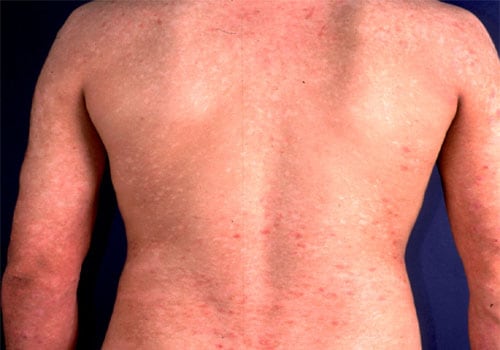
What is eczema?
Eczema, also referred to as atopic dermatitis, is a red, extremely itchy rash, most common on creases of elbows, wrists, and knees. It may occasionally occur on neck, ankles, and feet. The rash becomes raw and weepy on scratching. The itching has a vicious cycle wherein scratching causes more irritation leading to more itching and scratching. Atopic dermatitis is most often seen in infants and children, but it can continue into adulthood or first appear later in life.
Infantile eczema
When atopic dermatitis occurs in infants, it's called infantile eczema. This condition begins in infancy and may continue into childhood and adolescence. Infantile eczema often involves an oozing, crusting rash, mainly on the face and scalp, but it can occur anywhere. After infancy, the rash becomes dryer and tends to be red to brown-gray in colour. In adolescence, the skin may be scaly or thickened and easily irritated. The intense itching may continue. -
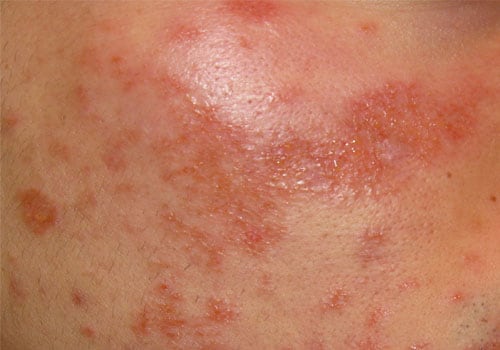
Why does it occur?
Eczema is an inherited type of sensitive, dry skin. A personal history of allergies, asthma or hay fever or a family history of eczema is usually present. Flare-ups occur on contact with irritating substances like soap or chlorine. In some people with eczema, certain foods cause the eczema to flare up. If any particular food item like cow's milk or eggs are causing the flare-ups, avoid that food for 2 weeks. Then give a challenge by having that food. If the eczema becomes itchy or flares-up within 2 hours of eating the food, it is the cause of eczema and should be avoided. Stress and other emotional disorders can worsen atopic dermatitis, but they don't cause it.
-
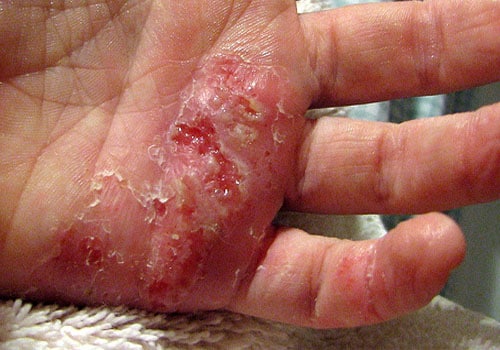
How long will the effects last?
It is a chronic condition and will usually not go away completely. Though there may be periods when the remission may last for a long time. Early treatment of itching is important to prevent a severe rash.
-
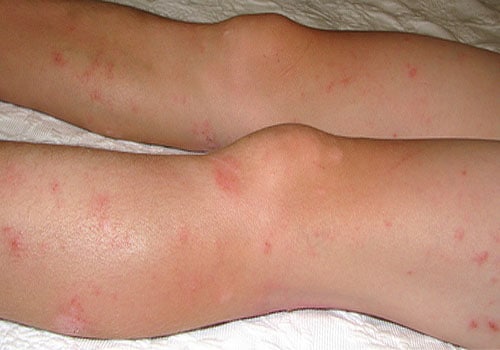
What are the symptoms?
Signs and symptoms of atopic dermatitis include:
- Red to brownish-gray coloured patches.
- Itching, which may be severe, especially at night.
- Small, raised bumps, which may leak fluid and crust over when scratched.
- Thickened, cracked or scaly skin.
- Raw, sensitive skin from scratching.
-
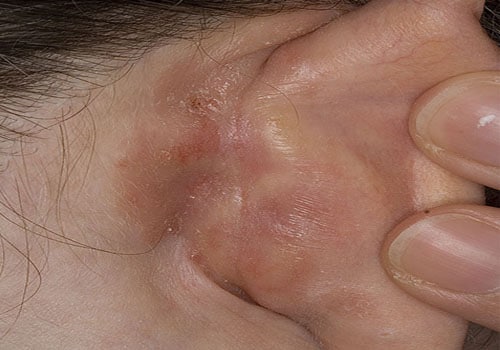
What is the diagnosis?
There is no laboratory test or skin test that diagnoses atopic dermatitis. Instead, it's typically diagnosed based on an examination of the skin and a review of medical history. The doctor will ask questions about signs and symptoms and whether any family members have asthma, hay fever or other allergies.
-
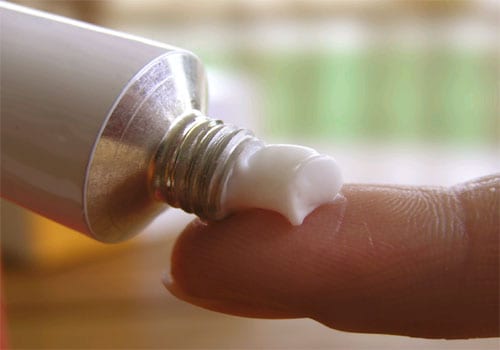
What is the treatment?
Treatments for atopic dermatitis aim to reduce inflammation, relieve itching and prevent future flare-ups. Over-the-counter (nonprescription) anti-itch creams, along with other self-care measures, may help control mild atopic dermatitis. Although atopic dermatitis is related to allergies, eliminating allergens is rarely helpful in treating the condition. Occasionally, items that trap dust — such as feather pillows, down comforters, mattresses, carpeting and drapes — can worsen the condition. Allergy shots usually aren't successful in treating atopic dermatitis and might even make the condition worse.
Local steroid creams are the main treatment for the itching in eczema. Use these as prescribed by the doctor. After the rash settles down, use it at least once daily for another 2 weeks. It can be used whenever the itching or rash develops. Good hydration of the skin followed by a lubricating cream is the main way to prevent flare-ups of eczema. Water-soaked skin is much less itchy. The eczematous skin is very sensitive to soaps, therefore avoid soaps as much as possible, especially during flare-ups. Alternatively, use a mild, moisturising soap. The skin is generally dry in eczema. After a good bath, the skin feels good due to hydration. The moisture in the skin can be retained by applying a layer of lubricating cream to the entire skin while it is damp. Apply it daily after the steroid cream has been applied to the itchy areas. Avoid applying any ointments or petroleum jelly because they block the sweat glands, increase the itching, and worsen the rash, especially in warm weather. Also, soap is needed to wash them off, which can aggravate the problem. Keep the fingernails cut short as the scratching with nails will perpetuate the vicious cycle of itching. Frequent hand washing will avoid any super-infection of the eczema. -
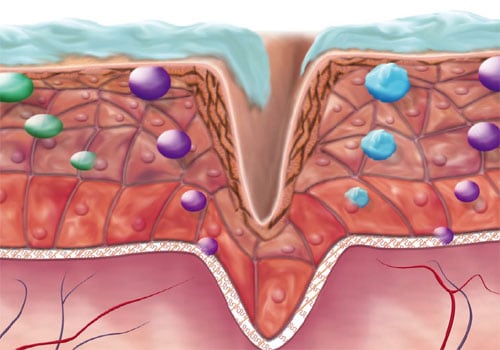
How can it be prevented?
Avoiding dry skin may be one factor in helping prevent future bouts of dermatitis. Scratchy, rough and woolly clothes make eczema worse and should be avoided. Cotton clothes are good and should be worn as much as possible. Avoid triggers like excessive heat, sweating, excessive cold, dry air, chlorine, harsh chemicals and soaps.


















